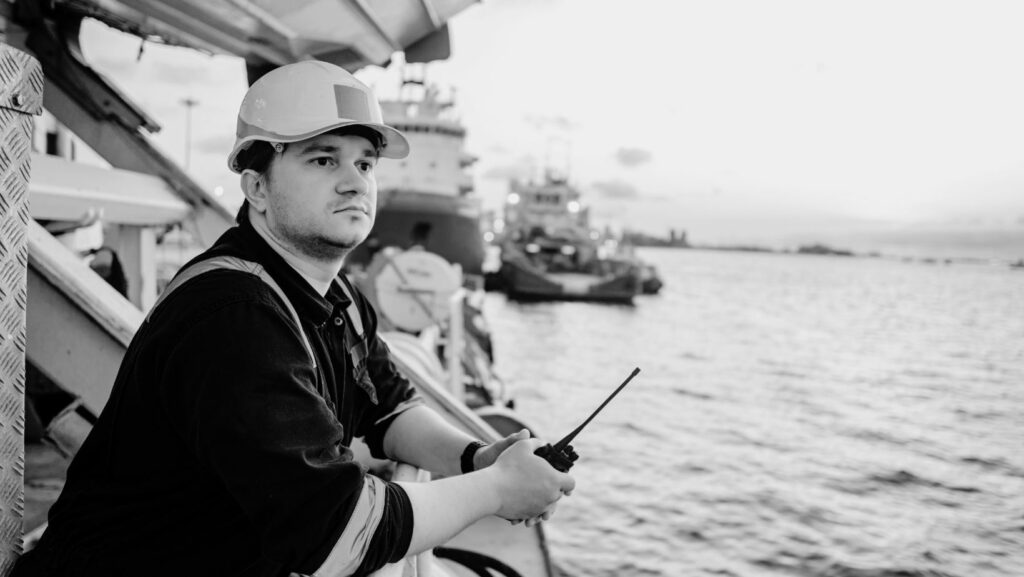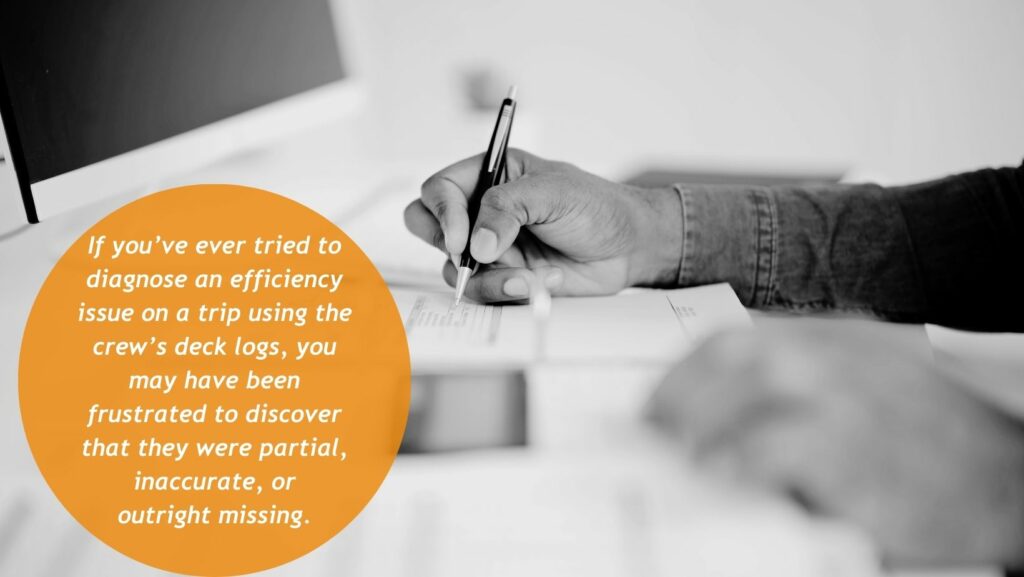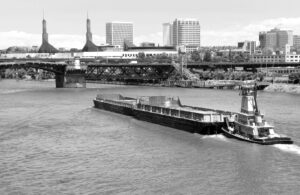
Like all businesses, there are things outside of a barge operator’s control, like bad weather or a congested waterway. However, companies can still do some crucial things to improve barge efficiency. Improving efficiency in towing barges is all about identifying the areas where you can have the greatest impact, as improvements in efficiency may only require minor tweaks but still significantly boost the bottom line. With that in mind, here are eight ways to make your barge operations more efficient before, during, and after each trip.
Before a Trip
#1 Reduce Manual Paperwork
One surefire way to reduce efficiency in your next barge operation is to rely on manual paperwork. Whether it’s creating tickets, emailing spreadsheets back and forth between the shore and your boats, or billing your clients, there’s always a chance that something slips through the cracks. And if that leads to you not getting paid on time, that’s not just an efficiency loss—it’s potentially a risk to your business. Digitizing and automating your paperwork process enables you to gain near real-time insight into your processes, then create tickets and bill far more quickly.
#2 Enhance Crew Training
Your crew can be your greatest asset—or a drain on efficiency in the wrong circumstances. While not every journey requires a crew to onload, stow, or offload cargo, many do, and untrained crews might perform these operations slowly or in an unsafe manner, reducing your efficiency at port. Training for both common and niche cargos can help ensure a crew can perform efficiently no matter what you’re moving.
Likewise, crews should be trained for situations like adverse weather or congested waterways to improve their efficiency and ensure safe operation. While the time saved may be a few minutes or hours here and there, training helps prevent catastrophic events like hull losses and engine room fires—and that itself is a significant amount of money saved.
During Trips
#3 Optimize Speed
Getting the cargo to its destination as quickly as possible might seem like a good idea, but that speed can sometimes hurt your bottom line. All engines have an ideal speed at which they maximize their fuel efficiency. Going too quickly, even by a few percent, could lead to substantial efficiency losses throughout a trip. On the other hand, going too slowly could also lead to less efficient fuel consumption and increased wages. The sweet spot for speed will vary based on cargo, weather conditions, and barge type, so maximum efficiency may depend on a crew’s ability to monitor and respond to changing conditions.
#4 Keep Proper Deck Logs
If you’ve ever tried to diagnose an efficiency issue on a trip using the crew’s deck logs, you may have been frustrated to discover that they were partial, inaccurate, or outright missing. Compounding the situation further, even well-trained crews sometimes make mistakes in the logs. The best solution to this issue is to digitize your logging process. With a program like BargeOps Onboard, companies can streamline issuing and logging orders, automatically track navigation, and provide an automated electronic deck log, including crew changes. Better, more complete logging allows you to detect potential efficiency issues during the trip and potentially resolve the issue before it becomes severe.

After a Trip
#5 Schedule Preventative Maintenance
Preventative maintenance helps extend the life of a barge and can improve efficiency when issues are found and resolved. After each trip, the hull, deck, and cargo hold should be inspected for damage, corrosion, warping, or leaks. Likewise, mooring and towing equipment and safety equipment should be inspected to ensure each piece is free from excessive wear and readily accessible. Finally, electrical systems, including propulsion and steering systems, navigational equipment, and additional equipment like lights, should be checked for proper function and monitored for wear, corrosion, or damage. If issues are found in these areas, fixing them now can improve efficiency and help reduce the chance of more severe issues in the future.
#6 Adopt Eco-Friendly Practices
Adopting environmentally friendly practices in barge operations helps keep the watershed healthy and enhances operational efficiency. Utilizing cleaner fuels, such as low-sulfur diesel or alternative sources like liquefied natural gas, reduces harmful emissions and can lower fuel consumption, leading to cost savings. Implementing energy-efficient technologies, such as solar panels for auxiliary power, reduces energy use and costs. Eco-friendly practices often improve operational efficiency; for example, optimizing routes for fuel efficiency also reduces travel time and fuel costs. Additionally, adhering to environmental regulations proactively avoids potential fines and operational disruptions, ensuring smoother, more predictable operations.
#7 Analyze Performance Regularly
Once you’ve increased your data collection around each part of your barge’s operations, you can identify situations where efficiency might be compromised. For example, a slow leg of a trip could be the result of inclement weather or a congested waterway, or it could be a sign of a more serious but fixable issue, such as a poorly-trained crew, a damaged hull increasing drag, or a propulsion system that is starting to fail. The key here is that you don’t know exactly what you’ll find by digging into the data, but the more you can collect in an automated manner, the more opportunities you’ll have to improve operational efficiency.
How BargeOps Helps with Efficiency
Running barges is just like any other business in one key area: if you’re buried in paperwork, you won’t have the time to assess your fleet and discover the areas where improving efficiency could significantly boost your bottom line. BargeOps helps companies streamline their operations across the board to optimize, grow, and scale. To learn more about what BargeOps can do for your operation, schedule a free call today.


